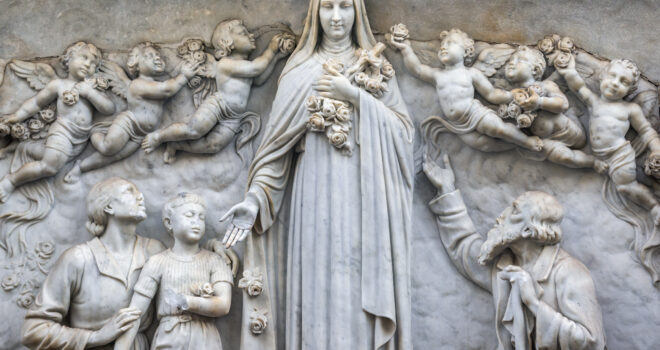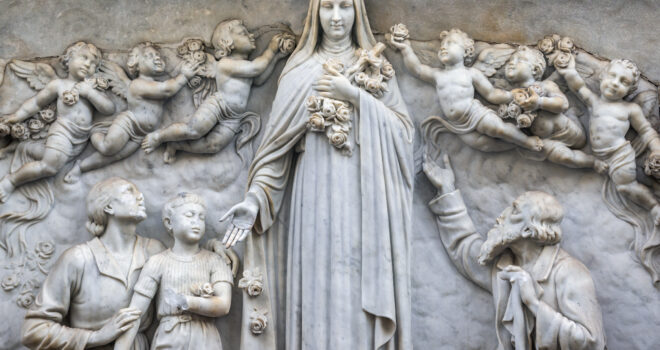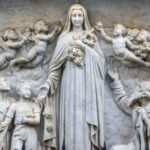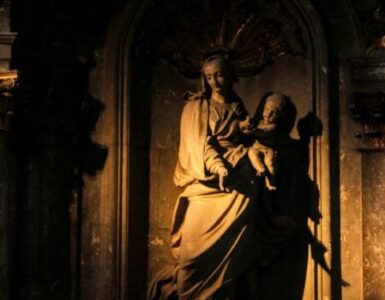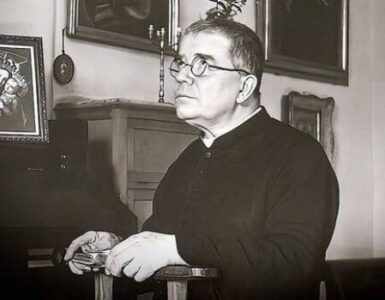We cannot go wrong by taking the advice of a Doctor of the Church. The one I have in mind is St. Thérèse of Lisieux. A strong and convincing argument for receiving a doctorate is the immense influence she has had on the approach to contemporary holiness. Perhaps more than anyone else, she taught that holiness is for everyone and that it is to be lived in the ups and downs of everyday life.
Pope John Paul II, in a pilgrimage to Lisieux, expressed his deep respect for the saint. In a homily delivered on June 2, 1980, he told his audience that “The ‘little way’ is the way of ‘holy childhood’. In this way, there is something unique, the genius of St. Thérèse of Lisieux. At the same time there is the confirmation and renewal of the most fundamental and most universal truth. What truth of the Gospel message is, in fact, more fundamental and more universal than this one: God is our Father and we are His children.”
The ‘little way,’ is most appropriate for us human beings who were created from nothing. So close are we to the zero point that humility seems to be the first demeanor with which we should begin our repertoire of virtues. And yet. Because we were created by an infinite power, with can also live with hope that God will not abandon us.
Once, when on her sickbed, she overheard some remarks made by young novices outside her window. One of the novices said, “I really wonder sometimes what our mother prioress will find to say about Sister Thérèse when she dies…she has certainly never done anything worth speaking of.” Sister Thérèse was happy to overhear this. The idea was precious to her “that no one may think of me, that I may be forgotten and trodden on foot as a grain of salt.”
She solved the paradox of how what is everything can penetrate what is nothing without destroying it by resorting to a solution of arithmetical simplicity. “Zero, by itself has no value,” she wrote, but put it alongside one it becomes potent, always provided it is put in the proper side, after and not before . . . ”. We may use the number 1 to symbolize the deity and 0 to stand for a human being. No matter how many zeroes we place to the left of 1m we do not increase it. However, even one zero place after the 1 increases its value. We may be like zeroes, but place to the right of God, we find our proper place and can live a life of dignity, value, and importance.
This image comports with something she said elsewhere: “It is just this—to find myself at my death with empty hands—that gives me joy, for having nothing I shall receive everything from God.” An electrical cord is useless unless it is plugged into a power source. Only then does it become useful.
Adam was alone. God looked upon him at said that this is “not good”. He suffered from “cosmic solitude, in the words of Saint John Paul II. He was plagued by his “zeroness.” The Gospel tells us that without Christ we can do nothing (John 15:5). The phrase has two meanings. Firstly, it means that we are unable to do anything of any importance without Christ. Secondly it infers that we can interpose our own “nothingness” into the world, something that is entirely valueless.
In Matthew 23:12 we are told that “whoever exalts himself shall be humbled, and whoever will humble himself shall be exalted”. We humble ourselves when we accept our humble condition as properly signified by the number 1. However, by attaching ourselves to Christ, we place ourselves in relationship to Him and therefore take on a significant role. On the other hand, if we presume to step in front of God, so to speak, by placing ourselves ahead of Him, we act with pride which is a metaphysical sin and exalt ourselves without any justification. St. Thérèse’s illustration concerning the proper placement of the zero is most helpful in our understanding of the two excerpts from the New Testament previously mentioned.
Pope Pius XII, speaking of St. Thérèse in his message to Lisieux on July 11, 1954, stated that “she rediscovered the Gospel itself, the very heart of the Gospel.” If the Pope’s words may have been an overstatement, nonetheless, she has given the Gospel message a sharper focus. Thérèse suffered a great deal during her brief tenure on earth. But she unfailingly turned to Christ for help. She confirmed the words that Christ spoke to St. Paul: “My grace is sufficient for you for my power is made perfect in weakness.” St. Paul responded by saying, “Therefore I glory in my infirmities.”
St. Thérèse knew where to place the zero and as a result became “exalted” as a Doctor of the Church. Bishop Patrick V. Ahern, D. D. former Auxiliary Bishop of New York has stated of the “Little Flower” that “She was a true innovator whose ‘little way’ to God has been enthusiastically received by countless thousands of people and has been accepted—and yes, canonized—by the Roman Catholic Church.”
As she hoped during her lifetime, St. Thérèse continues to do good work in this world for those who need her help.


